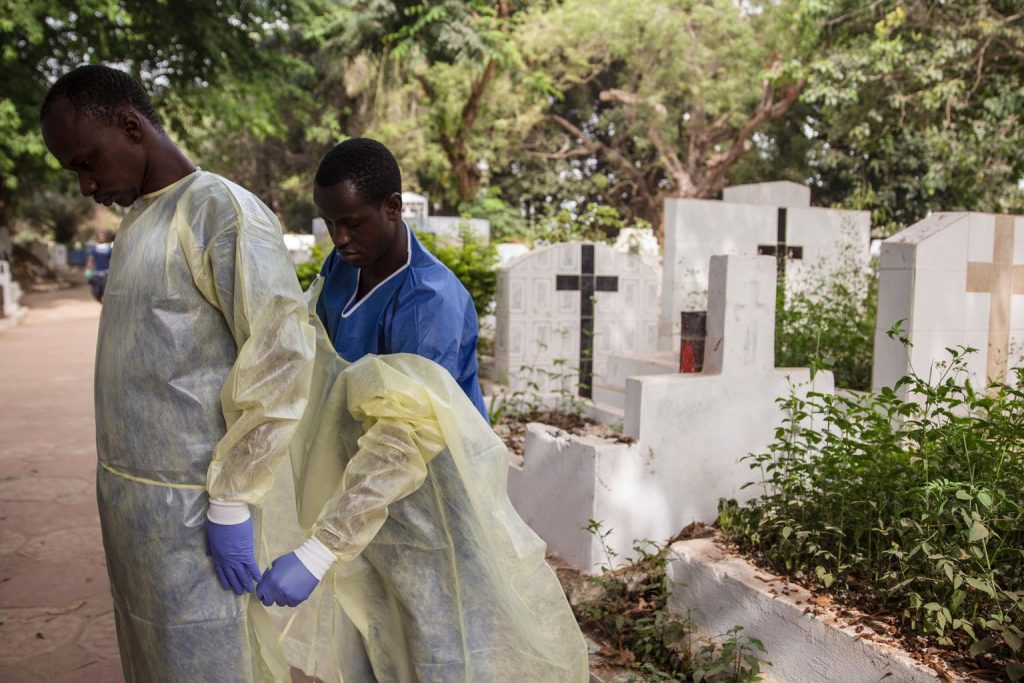Social Anthropologist Julienne Anoko visits communities to encourage safe and dignified burial. Infection of the Ebola virus can occur from touching the bodies of those who have died from Ebola virus disease (EVD)
Resource
Video: Encouraging Safe and Dignified Burial of People who have Died from Ebola

On 17 January, a worker from the International Federation of Red Cross and Red Crescent Societies (IFRC) helps a fellow worker doff his personal protective equipment in Conakry, the capital. They are part of a team helping transport the body of a woman who died from EVD from Donka Hospital to a nearby cemetery. The workers are responsible for safe and dignified burials, which respect cultural and religious customs while still ensuring persons do not come in contact with highly contagious corpses. Also critical to curtailing the outbreak is raising awareness of how the disease is spread and of the importance of safe burials, as well as working to ensure that families inform health facilities when someone is sick or has died. UNICEF continues to support social mobilization initiatives that promote understanding of these best practices among households across the country.
By 14 January 2015, Guinea remained one of three countries suffering widespread and intense transmission of Ebola virus disease (EVD). To date, there had been 2,806 cumulative cases (confirmed, probable and suspected), resulting in 1,814 deaths, in the country. As of 13 January, over 4.1 million children were living in areas affected by the virus, while 564 children and youth aged up to 20 years have themselves become infected. Despite these obstacles, in the week leading up to 14 January, the country reported its lowest weekly total of new confirmed EVD cases since the week ending 17 August 2014. UNICEF, together with partners, continues to provide vital support across multiple sectors, including communication for development (C4D), including efforts to raise awareness of the disease and effect behavioural changes that help halt its spread; health and nutrition; water, sanitation and hygiene; child protection; and education.
Related content
Case study
SSHAP learning note: Building a localised approach
This learning note shares insights, experiences and lessons from SSHAP's approach to the localisation of its operational responses in sub-Saharan Africa.
Central and East Africa Hub
West Africa Hub
SSHAP
2025
Evidence review
Rapid evidence synthesis: Mpox community protection
This note presents a rapid synthesis of evidence related to community protection in countries affected by the mpox clade 1b outbreak. Synthesising evidence related to community protection for mpox Medline, Africa Journals Online and Global Index Medicus were searched. IFRC,…
SSHAP
2025
Report
Meeting report: The impact of global aid funding cuts on people and programmes in South Sudan
Report of a roundtable with government actors, academics, development partners and journalists in South Sudan on the sweeping impacts on people and programmes of aid cuts and multiple, intersecting crises.
Central and East Africa Hub
SSHAP
2025
Briefing
Key considerations: Home-based care for mpox in Central and East Africa
This brief outlines key considerations on health system requirements for safe and inclusive home-based care for mpox.
Central and East Africa Hub
SSHAP
2025


